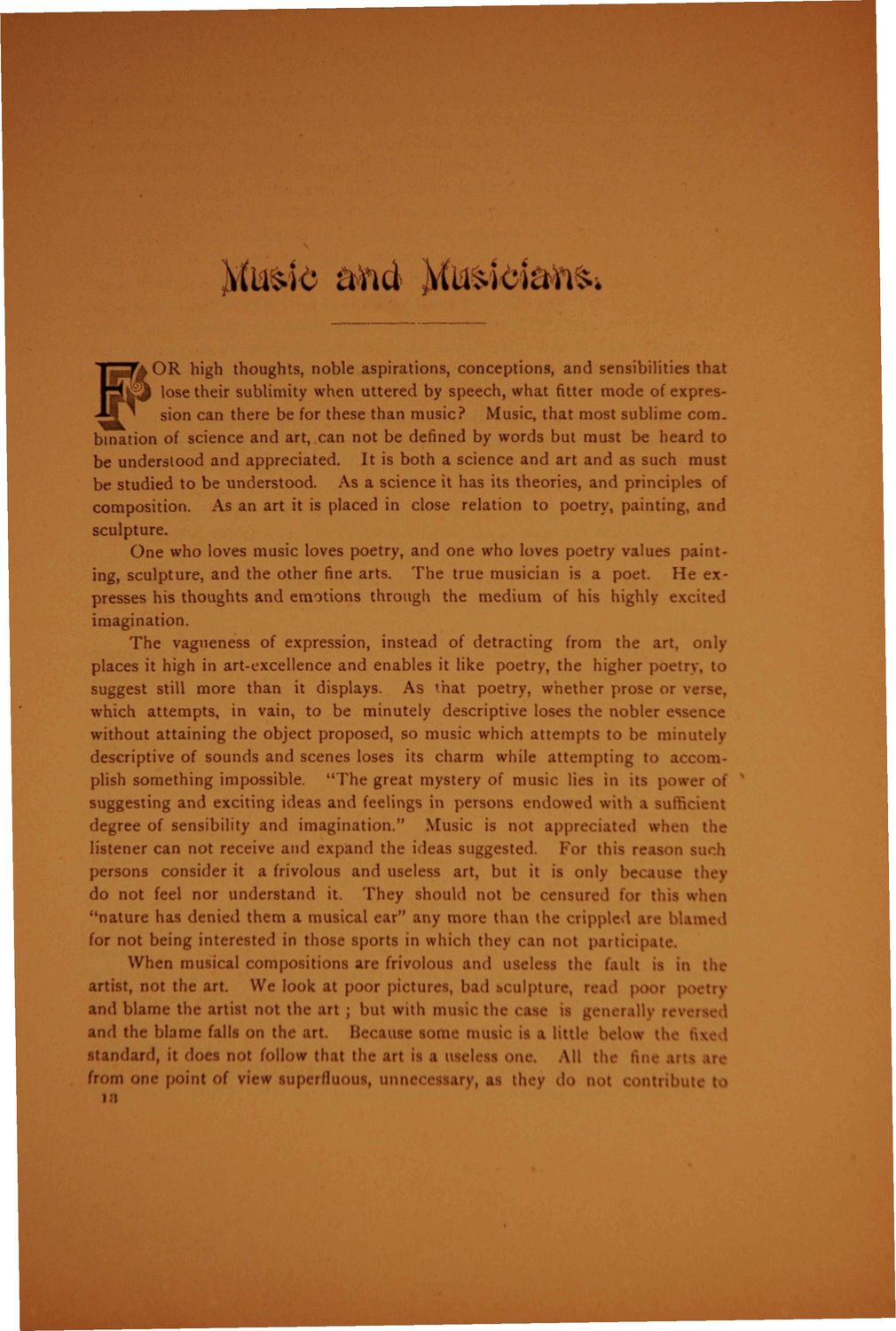| |
| |
Caption: Sophograph - 1889
This is a reduced-resolution page image for fast online browsing.

EXTRACTED TEXT FROM PAGE:
\iiis\o and Xustefohfc I p a / A O R high thoughts, noble aspirations, conceptions, and sensibilities that | 3 | ^ # lose their sublimity when uttered by speech, what fitter mode of expres**! ^ sion can there be for these than music? Music, that most sublime combination of science and art, can not be defined by words but must be heard to be undersiood and appreciated. It is both a science and art and as such must be studied to be understood. As a science it has its theories, and principles of composition. As an art it is placed in close relation to poetry, painting, and sculpture. One who loves music loves poetry, and one who loves poetry values painting, sculpture, and the other fine arts. The true musician is a poet. He expresses his thoughts and emotions through the medium of his highly excited imagination. The vagueness of expression, instead of detracting from the art, only places it high in art-excellence and enables it like poetry, the higher poetr to suggest still more than it displays. As that poetry, whether prose or vers which attempts, in vain, to be minutely descriptive loses the nobler essence without attaining the object proposed, so music which attempts to be minutely descriptive of sounds and scenes loses its charm while attempting to accomplish something impossible. "The great mystery of music lies in its power of suggesting and exciting ideas and feelings in persons endowed with a sufficient degree of sensibility and imagination." Music is not appreciated when the listener can not receive and expand the ideas suggested For this reason s*. :\ persons consider it a frivolous and useless art, but it is only because th do not feel nor understand it. They should not be censured for this when "nature has denied them a musical ear" any more than the crippled an darned for not being interested in those sports in which tin can not participate. When musical compositions are frivolous and USel s the fault is in the artist, not the art. We look at poor pictui ilpture, read poor pot and blame the artist not the art ; but with mu the case gen< illy re> and the blame falls on the art. Because some mu H a litt! the fix standard, it !oes not follow that the art a use! s on \ll the hi. sa fr n one point of view superfluous, unnecessary, as the] not contnl in
| |